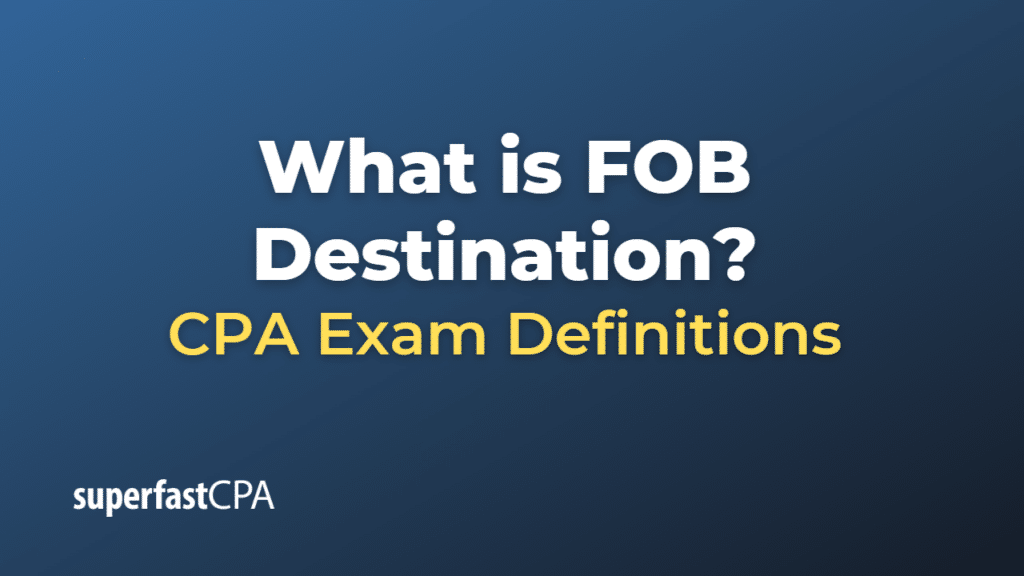FOB Destination
FOB stands for “Free on Board,” a term used in freight shipping that indicates when the ownership and liability of goods is transferred from a seller to a buyer. FOB can have two main types: FOB Destination and FOB Shipping Point.
FOB Destination means that the seller retains ownership and responsibility for the goods during transportation and will record the shipped goods in transit as part of their inventory. The seller bears all the transportation costs and risks until the goods are delivered to the buyer’s designated location. It’s only when the goods reach the buyer’s location that the ownership is transferred from the seller to the buyer, and the goods are recorded as inventory by the buyer.
For example, if a business in New York sells goods to a customer in California with terms specified as “FOB Destination,” the New York business is responsible for all freight costs and any damage or loss incurred during transport until the goods reach the customer in California. Only when the goods arrive in California does ownership transfer from the New York business to the customer, and the customer would then record the goods as inventory.
Example of FOB Destination
Suppose a furniture manufacturer in North Carolina sells a shipment of tables to a retailer in Texas, with the terms specified as “FOB Destination.”
- The manufacturer prepares the shipment and loads it onto a truck for delivery. At this stage, the manufacturer still owns the tables and would include the value of these tables in their inventory on their balance sheet.
- The truck leaves the manufacturer’s facility in North Carolina and heads toward Texas. During this journey, any damage or loss to the shipment is the responsibility of the manufacturer since the terms are “FOB Destination.” The manufacturer also pays for the shipping costs.
- Upon arrival at the retailer’s location in Texas, the shipment of tables is unloaded and inspected. Assuming everything is in order, the ownership of the tables is now transferred from the manufacturer to the retailer.
- The retailer would now record the value of the tables as inventory on their balance sheet, and the manufacturer would remove the value of these tables from their inventory.
This example illustrates how the FOB Destination term impacts the transfer of ownership and responsibility from the seller to the buyer, and how it affects the recording of inventory on their balance sheets.













